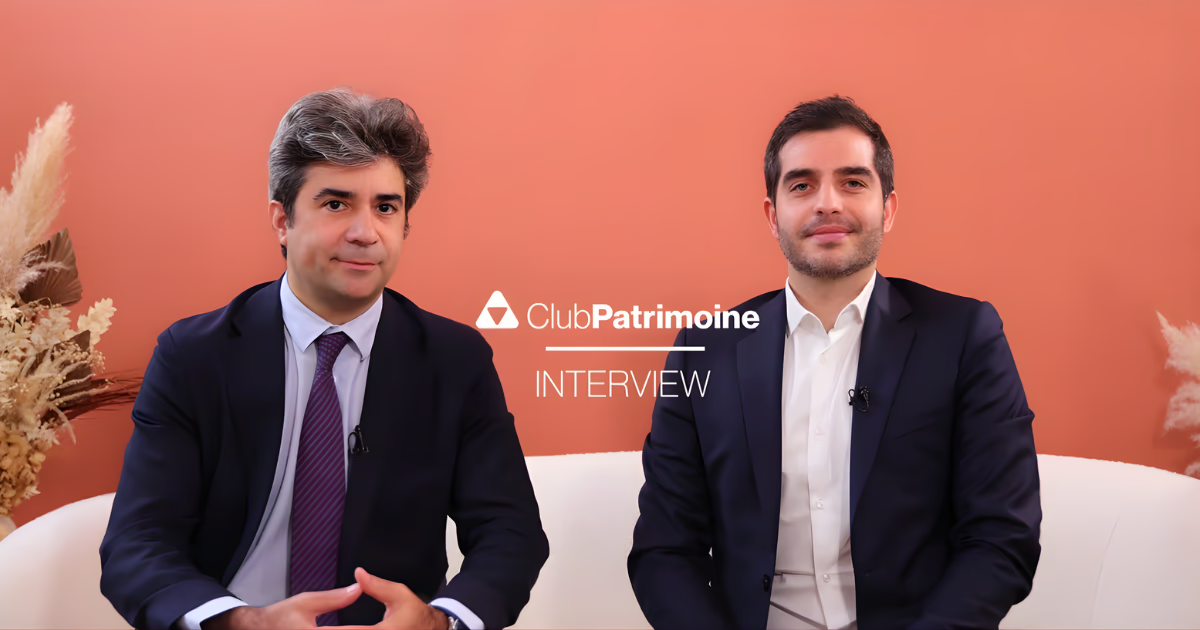Find out what Estelle Dolla, CEO of Private Corner, has to say about the ins and outs of investing in unlisted companies and private equity, on the Coeur de Patrimoine programme.
Take advantage of Private Corner's expertise and find out more about the investment funds on offer by contacting our experts:
Contact our Private Equity expert
Private equity is an asset class with the wind in its sails. For a long time, this unlisted investment was somewhat reserved for an elite group, an investment for which you needed a lot of money to take an interest. But for some months or years now, unlisted investments have been tending to become ‘democratised’. Find out more below from Estelle Dolla, President and co-founder of Private Corner.
🎥For thefull Private Equity analysis, follow the link.
Presentation of Private Corner
As a Private Equity firm in Paris, Private Corner is an asset management company that received its AMF authorisation in November 2020. It is a native digital asset management company, since its entire model is digital, and its aim is to provide wealth and asset management professionals and their clients with a selection of funds investing in unlisted assets with an institutional dimension, with subscriptions starting from €100,000, whereas the funds in which we invest and to which we give them exposure are usually accessible from several million euros. Private Corner selects funds across all private asset classes: private equity, infrastructure and private debt. In this way, we enable our clients and their end customers to build up a tailor-made unlisted portfolio over time, since we have now been offering this service and the associated products for three and a half years.
See our full range of private equity funds
How would you sum up private equity investing?
Unlisted investment (an asset class that includes private equity) involves investing in the capital of companies that need financing and that are not supported by banks, and that are not listed on the markets in order to develop. So it can be equity financing or debt financing. Then it all depends on the team's needs for development and whether or not it wants to dilute itself and have a new partner to co-write the story of the company's growth.
And Private Corner is the intermediary between the capital and these companies?
Private Corner effectively acts as a link between two worlds that have never spoken to each other before. That of wealth and asset management professionals and that of management companies, which have a proven track record of delivering first-class performance by supporting companies in their development. Depending on which private equity funds are active in France, you're going to have different strategies, different business sectors being financed in different geographies. So we invest in funds that themselves invest in a portfolio of companies directly, which are not listed on the stock market.
How is the private equity market doing in France?
The private equity market is necessarily very closely linked to the economy in general, since it is often said that private equity funds finance the real economy. However, it is a market that is not subject to the changes and volatility of the financial markets. If we look at recent events in France, you had the European elections and you can see the immediate impact on the stock market. However, companies have not lost the value they are believed to have lost between yesterday and today. Private equity is a long-term asset class, and is therefore less subject to the vagaries of the macroeconomy, since private equity investment funds have the time to identify the right companies and help them to grow not only organically, but also through acquisitions. They have the time to invest at the right time. They also have the time to choose the right moment to crystallise value. That's really the main difference between listed and unlisted markets, but under no circumstances is it a question of pitting listed and unlisted against each other, because our ambition is to ensure that unlisted investment becomes a fully-fledged part of the diversification of private clients' assets, and one that asset management professionals have been able to advise their clients on for several years.
What advice would you give to asset managers wishing to encourage their clients to invest in non-listed companies?
The first piece of advice is to be able to take a long-term view, since these are closed-end funds and therefore not liquid. This is the way in which Private Corner has chosen to offer investment in unlisted assets, since you now have a huge number of proposals and products that enable you to invest in unlisted assets. The positioning we have chosen is to try to give private clients an experience that is as close as possible to that of institutional clients. This means subscribing to closed-ended investment funds that are not liquid, on the basis that this is a long-term asset class and that there is no market timing for taking positions. And all the more so because the point is to come and take these positions regularly so that you can also leave your entry points and come and leave your risk.
The key point is to be accompanied by people who have the right partnerships and the ability to find the right funds. So you need a professional asset management adviser, family office or private banker to support you in the overall construction of your unlisted investment, with these advisers working with the right partners who are capable of selecting the right funds and ensuring that these partners have demonstrated their ability to provide you with the most regular and transparent information possible. Because even if you don't have to worry every morning about the value of your investment, it is essential to be able to have information about these investments and to give you regular information about the companies you are helping to grow through your investment, so that in the end it becomes an asset class that becomes interesting for you and so that you understand the ins and outs of your unquoted investment.
Portfolio diversification is a crucial point when investing in unlisted companies?
That's why we aim to offer a selection of funds that are diversified and complementary, with varying levels of risk/return depending on the strategies we propose, so that the asset management adviser is in the best position to provide advice that perfectly matches his client's needs and expectations in a given asset class, which is unlisted.
How much of one's wealth should be invested in private equity?
In Europe, we're a long way from the levels we've seen on the other side of the Atlantic, where the population is much more mature than we are. But there is a real question of risk-return balance and the overall level of financial assets excluding property and savings, which are not precautionary savings that can be allocated to the asset class. So I would tend to say that, depending on the risk profile of the customers who subscribe to this asset class, we can have a range of between 5, 10% up to 20, 30% for the largest financial assets. That's where the added value of advice comes in, in placing the right level of wealth in this asset class. And not to do it alone. And then, ultimately, it's going to be virtuous in the sense that we also operate on the basis of calls for funds, as institutional funds have historically done. The idea is that we commit to a given amount of investment, which will be called on as and when financing needs arise in the underlying companies. And so, if you say to yourself that you have to take positions on a regular basis, in the end, in year 5, for example, your distributions from investments made in year 1 will finance the calls of the same year.
This analysis of non-listed companies was produced by Estelle Dolla, CEO of Private Corner, a digital-native asset management company offering private equity professionals a 100% digital platform for investing in private equity.






